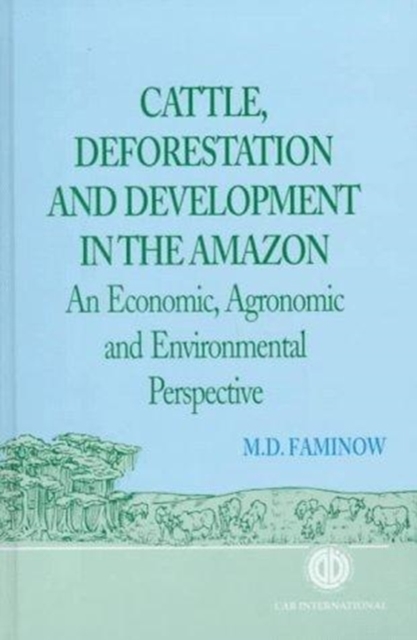
Cattle, Deforestation and Development in the Amazon : An Economic, Agronomic and Environmental Perspective Hardback
by Merle (Department of Agricultural Economics and Farm Management, University of Manitoba, Ca Faminow
Hardback
Description
The large-scale destruction of tropical rain forests and the consequences of the loss of their rich, complex ecosystems is one of the most well-publicised, globally important environmental issues of the late twentieth century.
The bulk of the remaining forest is to be found in the Amazon Basin, largely in Brazil and the rapid expansion of cattle ranching has been implicated as the main cause of irreversible deforestation in this part of South America over the last decade.
This book brings together and critically assesses the economic, agronomic and environmental evidence for the benefits and costs of cattle ranching in the Amazon region.
The ecology of the Amazon rain forest is described, along with methods of economic valuation of forests, agricultural systems in the Amazon, the history and underlying causes of its colonisation and the effects on land use, and the extent of deforestation.
This leads on to a more detailed description of the cattle ranching systems employed in the Amazon, their economics and effects on the forest.
In conclusion, the potential for sustainable cattle production in the Amazon is discussed.
The product of considerable field research in Brazil by the author, this book presents a positive perspective on a highly controversial topic, in a uniquely systematic way and with far-reaching implications.
It is an essential purchase for livestock economists, agronomists, foresters and environmentalists with an interest in South American and other tropical regions.
It will also be a valuable source for advanced students of agronomy, animal science, agricultural economics and ecology.
Information
-
Available to Order - This title is available to order, with delivery expected within 2 weeks
- Format:Hardback
- Pages:272 pages
- Publisher:CABI Publishing
- Publication Date:01/03/1998
- Category:
- ISBN:9780851992303
Information
-
Available to Order - This title is available to order, with delivery expected within 2 weeks
- Format:Hardback
- Pages:272 pages
- Publisher:CABI Publishing
- Publication Date:01/03/1998
- Category:
- ISBN:9780851992303






